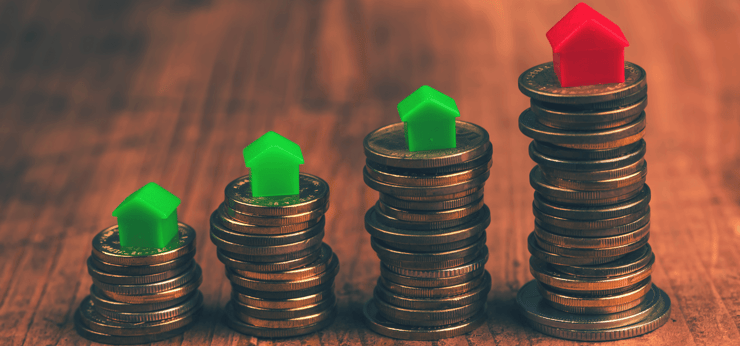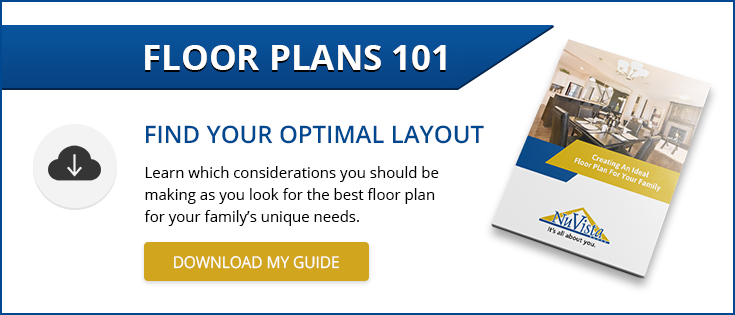 When you’re finally ready to upgrade your home, it’s tempting to go a little crazy. After all, you’re spending money to build the home of your dreams, so why shouldn’t you add all of the little extras you’ve always wanted? The downside is that those upgrades cost extra money. So, when calculating your next home purchase, you may want to think about how badly you really want (or need) the extras.
When you’re finally ready to upgrade your home, it’s tempting to go a little crazy. After all, you’re spending money to build the home of your dreams, so why shouldn’t you add all of the little extras you’ve always wanted? The downside is that those upgrades cost extra money. So, when calculating your next home purchase, you may want to think about how badly you really want (or need) the extras.
Banks approve you for a mortgage based on a combination of your income and your debt. In some cases, that upper limit is not quite as affordable when you factor in all of the other expenses your family has. Consider all of the reasons why it might be beneficial to stay below the budget set by the bank.
Spending Money on Other Things
The general guideline banks use for mortgage affordability is that the monthly payment shouldn’t exceed 25 or 30 percent of the borrower’s income. Borrowing the full amount offered to you might stretch your family’s finances, so only accept as much as you need.
With lower monthly payments, you’ll be able to take more vacations, send the kids to private school, and never have to worry about being able to afford the things you want. You’ll enjoy spending a lot of time in your new home, but you wont have to feel like you're stuck there. Having more money at your disposal means you can get out and enjoy life.
Factoring In Increased Costs of Homeownership
You already know homeownership comes with additional costs. Perhaps you’re choosing to build a new home to avoid the frequent repair costs that come with an older house. However, it’s important to realize that your upgraded home can still cost more money to maintain. For instance, if you’re moving from a 1,500 square foot home to a 3,000 square foot home, you’re going to see a big increase in heating and cooling costs.
A backyard pool is a great way to cool off during the summer, but it will have annual maintenance costs and increased insurance costs as well. Think about how all of your decisions might add to the general maintenance costs - you don’t want to be house poor because of a pool.
Building Up Savings
Savings are important. You need to save up money for retirement and for the kids’ college education. You'll also want to have a solid emergency fund to handle car repairs and other unexpected expenses. Having a lower mortgage payment allows you to direct more of your money into these types of savings accounts. You may not need the money now, but knowing it’s there in case of emergency makes for a less stressful life.
Protecting the Future
No one can accurately predict the future. A mortgage payment that’s affordable right now might become less affordable if you experience changes in your career path. A family illness might require one parent to take a long leave of absence from work. The costs of your child’s sports team or music lessons might significantly increase once he or she realizes it’s more than a casual interest. A high mortgage payment can make these future changes difficult to manage. With lower payments, you have more wiggle room to take on these additional costs as they come up.

The Pressures to Upgrade Your Lifestyle
When you have a more expensive home, you’ll find that you start experiencing other pressures to upgrade your lifestyle. You might feel bad about being the only family in the neighbourhood without a membership to the country club. You might feel like you need fancier cars, more fashionable clothing, or expensive “toys” like boats and jet skis. If you’re already stretched to the limit when it comes to making your mortgage payment, these extras will be harder to handle.
Many families find themselves going further into debt just to keep up with their friends and neighbours. When you buy a home comfortably below your level of affordability, you can feel more secure about your lifestyle and better able to make choices about spending money in other areas.
Eliminating Your Debt
If you still have student loans, car payments, or credit card debt, lower mortgage payments help you direct more of your money toward paying off these other debts. While a mortgage is typically considered “good debt” because you’re building equity as you make payments, it’s still a debt. You don’t have to take the full term of the mortgage to pay it off. Rather than maxing out your limit, you could choose a more affordable home, then pay more money toward your mortgage and other debts. You’ll pay off the debt sooner and save tens of thousands of dollars in interest.
It’s up to you to determine how you want to spend your money and determine what an affordable mortgage really looks like. Use our mortgage calculator to help you estimate monthly expenses. As you consider upgrades, plug those costs into the calculator to see how it affects the overall price. When you do that, you may see that some of your former “must haves” no longer look so attractive when it comes to long-term affordability for your family.





